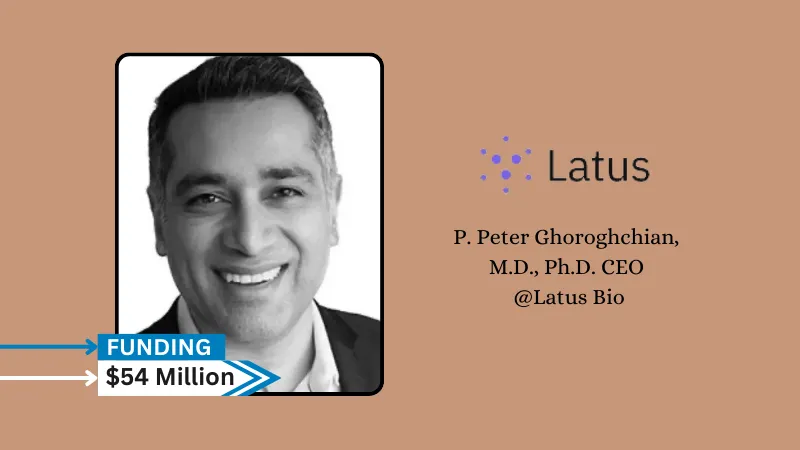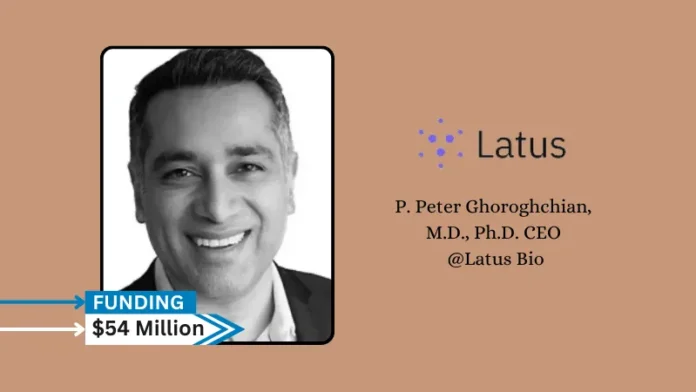
Latus Bio, Inc. , a biotechnology company developing novel gene therapy candidates for disorders of the central nervous system (CNS), secures $54million in series A round funding.
The funding round is being led by 8VC and DCVC Bio. To date, Samsung Life Science Fund (created by Samsung C&T, Samsung Biologics, Samsung Bioepis and Samsung Venture Investment Corporation), The Children’s Hospital of Philadelphia Foundation, Benjamin Franklin Technology Partners, Modi Ventures, and Gaingels have joined as syndicate partners.
Originating from the lab of co-founder Professor Beverly Davidson at the Children’s Hospital of Philadelphia (CHOP), Latus is developing CNS gene therapy candidates, using proprietary technologies that have been used to identify and engineer novel adeno-associated virus (AAV) capsid variants with the aim of showing unprecedented potency, specificity, and safety.
Read also – [FUNDING NEWS] CA-based Lamini Secures $25Million in Seed and Series A Round Funding
AAV-mediated gene therapy has long held promise for the treatment of genetically-defined CNS disorders; but, until now, it has been limited by its inability to transduce specific CNS substructures and cell types with requisite specificity.
These limitations have led to the reliance on high-dose injections that cause off-target toxicity and difficulties in scalable manufacturing. Latus’s proprietary technologies aim to directly address these challenges by enabling massively paralleled and unbiased screening of novel AAV capsids directly in non-human primates (“NHP”).
In these preclinical NHP models, Latus’s capsid variants demonstrated high gene expression in precise CNS locations with target cell specificity and minimal-to-no off-tissue activity. Based on these preclinical data, Latus plans to administer low doses of its product candidates in clinical studies, with the goal of improving safety and enabling successful manufacturing.
P. Peter Ghoroghchian, CEO of Latus said, “We are excited to introduce Latus and our novel approaches to developing AAV-mediated gene therapies, which we believe have the potential to transform the treatment landscape for genetically-defined CNS disorders, With this initial close of our Series A financing, we are poised to accelerate the development of our innovative candidates for CLN2 disease – with first-in-human dosing planned in late 2025 – and for Huntington’s disease, as we seek to address these challenging conditions.”
The Company’s management team is composed of experienced and respected leaders in gene therapy and neuroscience. Led by CEO P. Peter Ghoroghchian, a physician-scientist and serial biotechnology entrepreneur, the team brings a wealth of experience in advancing innovative therapies from platform identification to preclinical discovery and through successful clinical development.
Latus co-founder Professor Beverly Davidson and Latus Chief Scientific Officer Dr. Jang-Ho Cha are recent recipients of the 2023 Hereditary Disease Foundation’s Transformative Research Award in recognition of their innovative approach to advancing Huntington’s disease research.
Francisco Gimenez, Partner at 8VC, commented, “We are proud to help Dr. Davidson translate her incredible work at CHOP into Latus. It is so exciting to see the Davidson Lab’s deep insights in AAV therapies coupled with a dream team of drug developers. Empowering this science, team, and mission is the kind of work that makes you so grateful to be an investor.”
Kiersten Stead, Managing Partner at DCVC Bio, said, “The team at Latus has aggregated an immense pool of technology and know-how that we believe could lead them to overcome limitations that have been plaguing the modality—specifically the interconnectedness between therapy manufacturing, specificity, and therapeutic window.”
About Latus
Latus is a patient-centric and product-oriented gene therapy company founded by members of the academic lab of Professor Beverly Davidson – Chief Scientific Strategy Officer of the Children’s Hospital of Philadelphia and co-founder of Spark Therapeutics. Its proprietary AAV capsids have been identified by screening tens of millions of novel variants directly in non-human primates (NHPs), using optimized routes for clinical administration.
In preclinical NHP studies, Latus’s product candidates exhibited high gene expression in precise locations in the central nervous system (CNS) with cellular specificity and minimal off-tissue activity. As a result, Latus plans to administer low doses of its product candidates, with the goal of improving clinical safety and enabling successful manufacturing.



